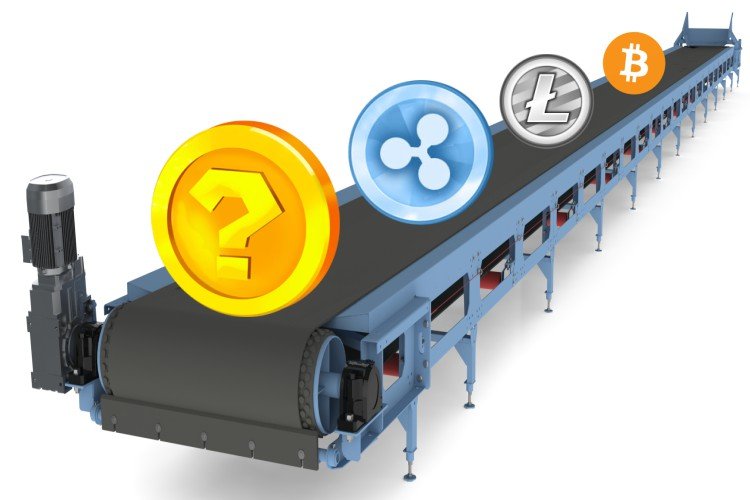Is there a need for new cryptocurrencies to be created?

Some currencies have come into being to replace other legacy models, which may have features that no longer suit our needs. For example, there are many new cryptocurrencies with superior scaling capabilities and reduced fee structures that would be far easier to use than something like Bitcoin, which just can not keep up any longer in its current form.
Do dentists need a coin?
However, there are other more questionable ones out there. For example, Dentacoin. This is a coin made for the dental industry. While it's certainly cool that dentists would be interested in using cryptocurrency, do they really need their own coin? This seems like a very niche industry, and it would be perhaps even easier for them to simply accept a more prominent coin such as Litecoin or Bitcoin should they be interested.
While usually, these platforms do offer some other feature with their assigned token, it all seems a little unnecessary at times. Even tokenized platforms seem to be getting a little stale. There are so many "build your blockchain on our blockchain" projects, that every time someone starts their token description with "scalable platform" I groan a little bit. This is a wonderful goal, don't get me wrong, but there is such a large number of them, that sometimes I just can't see the need for more to exist.
Let the market decide!
Fortunately, that's not up to me though, because I don't feel the question "Is there a need for new cryptocurrencies to be created?" is valid. The market will dictate the need, and if there is none, then those projects will fail.
While yes, there are many copycat ERC20 clones out there, and about a million "the next Bitcoin" boasts going around various internet forums and social media, all of these projects do have a place. They are part of the blockchain's evolution. Cryptocurrency is a free market, and anyone can create a coin for any reason that they choose. That means that if dentists want a coin, then they can make one. Nobody has to use it, but if they want it to exist, then it is free to do so.
Cryptocurrency has historically been a very open source and community-driven, and that's a beautiful thing. It has allowed lots of awesome projects to existing without unnecessary government intervention, at least until now, that may soon change with world governments trying desperately to retain control. I'm convinced that it's too late for them to ban cryptocurrencies outright, and they've seen how useful the blockchain is. Instead, they will try to control its uses, but good luck with that.
They may even utilize the blockchain themselves. Many industries are prime candidates for this technology; I just don't really think dentistry is one of them. However, banking seems to be suitable, as long as blockchain projects can find a way to transmit sensitive data safely and privately.
Real life use cases
The use of cryptocurrencies for worldwide remittance offers serious advantages over a traditional fiat exchange system. For starters, it's a globally accepted currency, which makes it easy to send money to anyone in the world regardless of their native government-issued currency. That means no exchange rates or hassles involved.
It's also fast and very cheap to send digital currencies. Many of which are capable of confirming in less than a minute. One of the highest market cap coins in this sector is Ripple. However, if I were to perform a Ripple analysis, I would not likely invest in this coin. There are too many other systems already for remittance in cryptocurrency. Why would I need yet another coin for it? One, that many feel has been made to cater to the very institutions that cryptocurrency was intended to replace.
Another area that could be considered open for improvement by the ledger could be any industry that needs "fair play" regulations, but one where the intervention of a centralized entity is not welcome. This is a broad topic, but that just means it can help many markets.
For example, a smart contract based trading platform for virtual items removes any aspect of fraud associated with traditional trading platforms. It also excludes any costly fees that come with using a corporate payment processor that must bend to the will of financial giants like Visa in order to operate. It's even possible for these platforms to implement their own AIs which can perform functions automatically, which can include the buying or selling of items or services. In these areas, I think the blockchain will excel.
Bright crypto-future
A blockchain is simply a tool, and it's up to us to decide what it's used for. In the future, I feel that people will grow tired of projects that are only currencies, no matter how novel their approach. They'll need to justify their existence with more and more impressive features. If they don't have privacy capabilities and scaling solutions built in, then I doubt these new projects will survive; however, it is there right to try.
There's nothing inherently wrong with having multiple currencies. In fact, I think it bolsters decentralization. There's just too many of them for one group to control everything, and this may prove to be important in the future as more and more mainstream institutions jump on to the cryptocurrency bandwagon.
These niche holdings may prove to help prevent manipulation of markets or censorship. Why? If one currency is compromised in some way that its users no longer feel safe using it, then that coin can be hard forked into a new version that fixes the problem, or they can just create a new currency entirely that addresses any issues the future can throw at them. A new cryptocurrency is not just a currency, but it is a significant step in the blockchain's evolution.